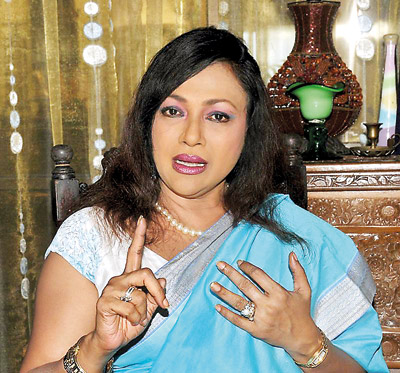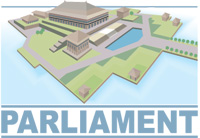Columns
Women’s Empowerment Bill to give teeth to seven-member National Commission for Women
The Women’s Empowerment Bill, a key legislation announced by President Ranil Wickremesinghe to safeguard the rights of women, was passed in Parliament on Thursday (20) with amendments.
The bill makes provisions for a national commission for women. It also paves the way for the drafting and implementation of a national policy on women’s welfare and empowerment, establishment of mechanisms to protect women’s rights and the ability to take legal action regarding the violation of those rights.

Geetha Kumarasinghe
The bill was a joint effort by the Women Parliamentarians’ Caucus, the Sectoral Oversight Committee on Children, Women and Gender, and the Ministry of Women, Child Affairs and Social Empowerment.
Presenting the draft bill, State Minister of Social Empowerment Anupa Pasqual told Parliament that while women have made advances in many fields and narrowed the gender gap around the world and in Sri Lanka, the bill will ensure that progress is protected by enacting legal protections for them. The seven-member National Commission for Women (NCW) that will be set up under the new Act, will give women the opportunity to complain regarding violations of rights afforded to them under the Constitution and will have wide-ranging powers to investigate those claims and take action, Mr Pasqual further stressed.
One of the most important aspects of the bill is that it will give the NCW power to draft a national policy on women’s empowerment, the state minister added. The Commission must present this policy to the Cabinet for approval, where Cabinet can make any amendments if necessary. The draft policy will then be gazetted and must be presented to Parliament within one month. The NCW and the subject minister are also legally obligated to obtain the agreement of all ministries for the new draft policy.
The Women’s Empowerment Bill was one of two gender based bills that President Wickremesinghe had been hopeful would be passed by Parliament this month.
The Supreme Court however, ruled that the government’s Gender Equality Bill as a whole was inconsistent with the Constitution and would require both a special parliamentary special majority and a referendum. Raising a point of order on the matter in Parliament on Tuesday, President Wickremesinghe had criticised the SC’s ruling, which he called “a perverse determination which this House should not follow.” He insisted that it violated the powers of Parliament and proposed the setting up of a Parliamentary Select Committee (PSC) to study the determination. The President’s proposal prompted an outpouring of criticism from opposition MPs.
The matter even came up during the debate on the Women’s Empowerment Bill, with National People’s Power (NPP) MP Dr Harini Amarasuriya saying that the bill required a wide-ranging dialogue given its sensitive nature. She said a crisis had been created by the manner in which the Executive and a small group that surround him draft and present such bills without holding a broad dialogue that is needed. “The President should understand that as an Executive without a mandate from the people, he should be very careful when presenting such legislation,” she said.
 The MP said that there are questions whether a proper dialogue had been held even within the government regarding the Gender Equality Bill. She argued that the end result was a weak draft bill filled with vague clauses, which was the reason why the Supreme Court had determined it was inconsistent with the Constitution after it was challenged. “This is not a matter that can be resolved by attacking the judiciary and rejecting its ruling for the stance it has taken,” Dr Amarasuriya said. Moreover, when such vague and weak bills are presented and end up being rejected by court, the groups that should be protected by such legislation are thrown into further insecurity, she pointed out.
The MP said that there are questions whether a proper dialogue had been held even within the government regarding the Gender Equality Bill. She argued that the end result was a weak draft bill filled with vague clauses, which was the reason why the Supreme Court had determined it was inconsistent with the Constitution after it was challenged. “This is not a matter that can be resolved by attacking the judiciary and rejecting its ruling for the stance it has taken,” Dr Amarasuriya said. Moreover, when such vague and weak bills are presented and end up being rejected by court, the groups that should be protected by such legislation are thrown into further insecurity, she pointed out.
While about 53% of the country’s population is female, only a small number of women MPs are in Parliament to represent them, State Minister of Women and Child Affairs Geetha Kumarasinghe pointed out. “We all know why this is. From the time of handing over nominations to contesting the election, I know from personal experience how hard it is for a female candidate. I didn’t come from a political family. I had to do all this on my own.”
The state minister said women candidates who contest from the grassroots level to provincial councils and Parliament all face enormous obstacles to getting elected and added that Parliament must lead the way in ensuring women’s equality.
The opposition also presented several amendments to the draft bill during the committee stage. While some of these were accepted, the government was not agreeable to several others, leading to a division having to be taken. These amendments were defeated by a majority vote.
Buying or selling electronics has never been easier with the help of Hitad.lk! We, at Hitad.lk, hear your needs and endeavour to provide you with the perfect listings of electronics; because we have listings for nearly anything! Search for your favourite electronic items for sale on Hitad.lk today!


Leave a Reply
Post Comment